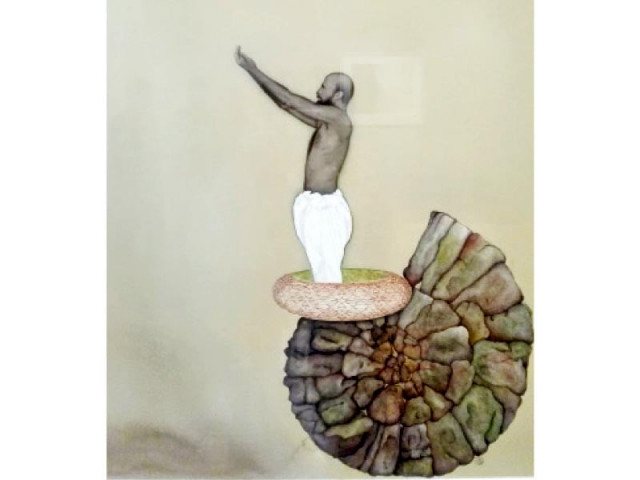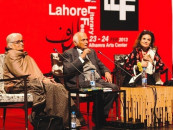Solo show: Using stones and circles to make a point
Exhibit features 20 paintings by artist Ejaz Saeed

Select work on display at the exhibition. PHOTO: MARIAM SHAFQAT/EXPRESS
The artist’s first solo show features over 20 gouache on wasli pieces. Speaking about his work, Saeed remarked that it was essentially a continuation of a previous series inspired by the process of having to deal with identity issues and self-realisation. He said the symbolic elements like circular stones signifying wholeness and continuity were a recurring motif in the series. Saeed said his paintings referred to “halo” in particular—used in old Mughal miniatures to symbolise temporal power, affluence and significance.
“Contrary to its traditional connotation, I have employed it to further the message that every single individual was important in their own capacity,” he said. Saeed said the inspiration behind these paintings was personal. “Being a hafiz, society expected me to lead a certain kind of lifestyle or profession,” he said. Saeed said the concept behind the paintings on display was to dispel the myth that a bearded hafiz could not become a doctor, scientist or painter for that matter.
“No one has to mould their thoughts in accordance with societal demands. I’ve tried to point towards the importance of the mind as every thought, action and interest of an individual is important,” he said. Saeed said his work was simple in nature. He said it probed individuality to recognise the significance of one’s thoughts. Saeed said the figurative elements in his work represented the need to take an initiative and a stand for one’s self. He said he had aspired to give a surrealistic character to his work by employing the paradoxical use of stones and spaces—all fusing together—without any distinct beginning or ending.
Arif Naeem, a teacher of Saeed’s, said his student had made socio-political references to the beard—generally associated with religious extremism—through Mughal miniature art.
Saeed graduated from the National College of Arts in 2012.
Published in The Express Tribune, March 12th, 2016.


















COMMENTS
Comments are moderated and generally will be posted if they are on-topic and not abusive.
For more information, please see our Comments FAQ